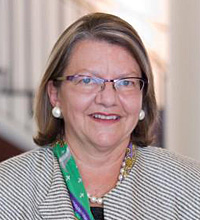A Western Woman Advising Saudis on Governance: Cultural differences & similarities
The Kingdom of Saudi Arabia is a “closed” country: a visa is needed to enter, and they are not easily granted. Most visas are to men who come for work with a company based there. In my case, I have twice been fortunate to receive an individual five-year visa. In the last 11 years I have made more than 40 trips alone into Saudi to help Saudi family businesses strengthen their governance. Most of my clients have been in the strict Wahabi area of Riyadh. It is the most “different” country I have ever been in. But it is also very “familiar”.
The cultural differences are many:
- I’m a “western” person (United States, Minnesota) and Saudi is an “eastern” (or “middle east”) culture.
- I’m from a “democracy” country; Saudi is an absolute monarchy. Criticism of the Royal Family is not allowed. Neither are protests. (Saudi had no protests during the Arab Spring). Information is still censored.
- I’m a Christian by upbringing; Saudi is officially Muslim (no others are allowed to worship). Activities stop during the five daily calls to prayer. Mosques are everywhere. Hotel rooms show the direction of Mecca and include prayer rugs. Domestic flights begin with a prayer from the Prophet Mohammed (pboh). Alcohol and drugs are forbidden.
- There are thousands of roving “religious police” (the mutawa) officially named “The Commission for the Promotion of Virtue and the Prevention of Vice” who enforce public behavior.
- I’m a woman: Saudi law prohibits “mixing” between men and women (with dire consequences). Saudi women are prohibited from driving (or from traveling alone). Their husbands are allowed to have up to 4 wives at a time. All women (including western women) in Saudi must be covered by a black abaya and head scarf. Women may not practice law (I am a lawyer). Women receive ½ the inheritance that sons receive. Women are not included in the family tree. The list goes on.
On the other hand, there are many important similarities:
- The love of family is demonstrated on a regular basis: hugs and hand holding (among men), cheek kisses (among women), adoration of the small children, weekly family dinners (often of the extended family).
- I see and hear great pride by men about the accomplishments and talents of their wives, daughters and sisters.
- The elders are shown extreme respect by the whole family.
- Family businesses make up about 95% of the non-oil revenue—and are thus very important to the Kingdom.
- Family businesses tend to favor bringing in family members.
- Families want their businesses to last in the family for many generations.
- There are highly visible family fights over the control of a family business.
- The second generation has, in general, world-class educations and business and investment savvy.
- They are hungry for “best practices” to avoid the ruinous conflicts.
- They choose advisors from those who have been “vouched for” in their very connected relationships. To be hired is often a very slow relationship-building process.
A typical Saudi client engagement (identifying aspects have been changed)
The oldest son in the second generation heard from his cousin that I had given a talk in Bahrain on the governance of family businesses, and heard me say that I am often in Riyadh. The son invited me to have lunch with him and two of his brothers. During the lunch they asked me a lot of questions.
Later they asked me to visit their family business office in Riyadh. Again the three brothers asked me a lot of questions, this time about my book (International Family Governance) which is also in Arabic. They tried to figure out who I knew in Saudi (I helped this process by including a long alphabetical list on the acknowledgment page of my book). They had checked out my website.
Next they asked me to make a simple PowerPoint presentation they could show to their father. Nothing at all happened until my next time in the Kingdom. Then they invited me to the home (by the way, a man could not be invited to the home if any females would be there) and I met more brothers and met all the sisters (eight of them, some of whom were already grandmothers and all but one of whom had many children). I sat on cushions on the floor and answered the Patriarch’s questions. When I was comparing country forms of governance (being careful on the delicate monarchy model) he announced: “In my family we are a democracy. If anybody needs anything they come to me and I take care of it.”
Still not hired, next was a three hour dinner in the family dining room.
On yet another trip I did get hired! I began with the process I have found to work so well, especially in other cultures than mine, which is to have private interviews with each person. They had spent some time on who should be included. They settled on the Patriarch and his wife, all of the adult children, all children at least 16 years old, and two of the in-law wives who had heard about it and wanted to know what was going on.
As always happens, those interviews gave me a list of issues that could become disruptive in the future (or already were). We used those issues to form the agendas for their first formal family meetings, which I facilitated.
At the first meeting, which began after dinner, about 10 pm, the Patriarch asked me whether the daughters should be in any of the meetings—and they were all sitting at the table! They were staring hard at me. We finessed that issue somehow (deciding yes) and then he asked me if the eight of them should share one vote! We finessed that one also (separate votes).
The oldest son had looked at the agenda list and told me they could finish the first four or five at the first meeting so it all shouldn’t take that long. I repeated that they were the ones who would determine the speed, not me, so we would just see how it went. (This should be sounding familiar to my fellow advisors!). Predictably the first issue (sharing vacation homes) wasn’t quite finished by the end of the meeting.
We continued the meetings for two years, and they signed a Family Constitution, taking photos and celebrating. The official work ended several years ago, but when I am in Saudi I am always invited to their home for another of the large, warm, friendly family dinners. During my November trip there in 2013, they surprised me by cooking a Thanksgiving turkey.
About the contributor:
 Barbara R. Hauser, M.A., J.D. has more than 25 years experience working with families in many countries. Based in Minneapolis, MN she is a frequent speaker and is the author or co-author of several books, including her most recent, International Family Governance and International Estate Planning. Barbara can be reached at BRHauser@gmail.com.
Barbara R. Hauser, M.A., J.D. has more than 25 years experience working with families in many countries. Based in Minneapolis, MN she is a frequent speaker and is the author or co-author of several books, including her most recent, International Family Governance and International Estate Planning. Barbara can be reached at BRHauser@gmail.com.




